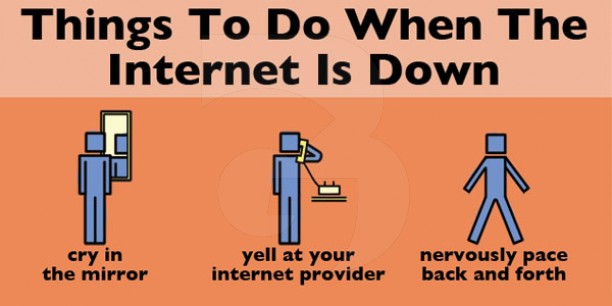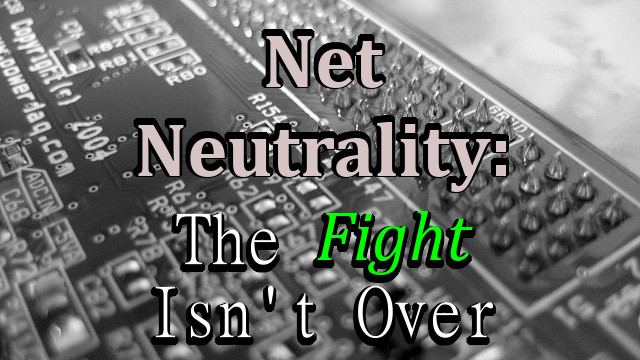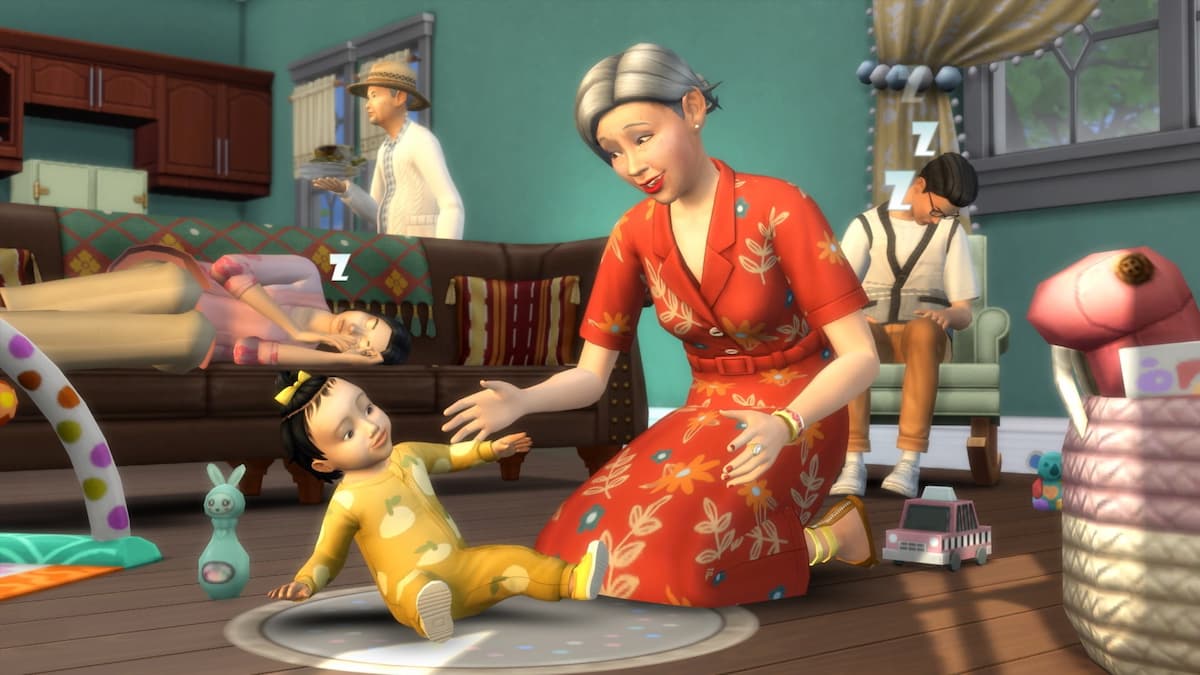The FCC is considering propositions that would do away with the Title II regulations placed on Internet Service Providers (ISPs), which will negatively affect net neutrality. But what is Net Neutrality? And as gamers, why should we care?
Title II was implemented in 2015 to give the FCC the power to stop ISPs from rigging access to services. Net Neutrality is the concept that all content is treated the same. Every website, gaming service, or streaming service gets the same precedent when you are using the Internet. It’s a little more complex than that in practice — but at its most basic, Net Neutrality is a concept that could potentially be met in different ways.
The Dangers of a Non-Neutral Net
There are three distinct dangers (among other potential dangers) that removing these regulations could make a reality.
- Companies could potentially pay to get preferential and prioritized treatment over their competitors. That is to say, Netflix doesn’t get preferential treatment (and faster load times) over PSN just because Netflix paid more money than Sony — at least in the current environment.
- ISPs could start strong-arming companies to pay a “tax”, or otherwise their services might not be prioritized. This, in turn, would make the quality of your internet experience drastically differ from region to region, ISP to ISP, website to website, video game to video game. As of now, companies are not allowed to slow down a Steam service, for example, just because Valve won’t pony up.
- ISPs could stifle the services of direct competitors or dissenters. For instance, there is the verified case of AT&T and Verizon discontinuing access to Google Wallet for their customers so that more people would flock to their payment service ISIS.
You can read about more examples of ISPs running roughshod over Net Neutrality all over the internet — the practice is unfortunately common.
The Arguments For Removing Title II
Hank Green did a great video tackling both sides of the issue.
The Internet Worked Fine Without Title II
The head of the FCC argues that these regulations weren’t on ISPs for many years, yet the internet worked just fine — which is true, yet naïve. It’s the equivalent of saying, “There were no laws against murder for years and we never had problems with people being murdered. Thus we should now remove those laws!” Moreover, it is a misleading statement. Why? Because there were a handful of instances in the early 2010’s that caused these regulations to be enacted in the first place.
One such example was between Netflix and Comcast. During negotiations between the two companies in late 2013 and early 2014, Netflix’s speed for Comcast users plummeted… until shortly after they’d come to an agreement with Comcast, at which point their service quality drastically increased. Either Comcast was making Netflix quality intentionally worse, or Netflix paid to make their service intentionally better. (Or it is just one of the biggest coincidences ever…)
Removing Title II Will Increase Investments
The FCC also argues that this will add more infrastructure and competition to the market, but it is unclear exactly how this will be done. As John Oliver points out, internet companies have stated to their shareholders that these regulations did not change their expected investments in infrastructure. Keep in mind, they are legally required to brief their shareholders realistically, and there would have been no real incentive to lie about something like this.
Moreover, starting up an ISP is not exactly easy. Even Google’s Fiber rollout has been expensive and slow, despite the company giving access to a product that is revolutionary and offers speeds up to 1 Gbps (250x faster than what’s legally defined as broadband.
Netflix Should Pick Up the Infrastructure Tab
Lastly, many argue that companies like Netflix — which consume a large amount of the internet — should have to pay more to help invest in infrastructure. But this is not the way that we run service providers in the U.S. For instance, we don’t charge air conditioning companies just because their products consume a large amount of available electricity during the summer. Similarly, we don’t charge pool companies for us using more water.
ISPs are not liable for anything that we do with the internet. They are not held accountable for how their service is used, whether it’s to let a group of teens cyberbully or help terrorist groups plan attacks. So why should they be able to then single out the companies we use most and hold them accountable for how we spend our internet time?
In short, it shouldn’t really matter whose services we are using; the same quality internet should provided regardless. What removing these restrictions will really do is place consumers at the mercy of large corporations. And I am not just talking about ISPs, but also all the large companies that can pay to have competitors’ service throttled.
I’m Just a Gamer, Why Should I Care?
You should care about this because this affects you, me, and everybody else in America in very real, practical ways. In fact, the pastime you are engaging in right now — browsing the internet — would be very different without the existing regulations on ISPs. If you enjoy playing games online, then you could also see your quality drop.

This is a Bipartisan Issue
Make no mistake: while Washington would have you believe this is a partisan issue, it isn’t. There are great reasons that both liberals and conservatives should support net neutrality.
For liberals, many would argue that unimpeded, equal access to internet — especially internet that you have rightfully paid for — is a modern civil right. However, the connotations go further than merely having slow Netflix streaming speeds or businesses being able to stomp out competition by choking access to their websites. At its most extreme, ISPs could control what you are able to see and view — and thus control your understanding of the world around you. If there is a website that critiques a brand or service — or more seriously, a politician or social issue — then that website could become inaccessible.
I’ll sum it up in gaming terms. Do you hate pay-to-win games? Think they’re vastly unfair? Well…repealing net neutrality could make the whole internet a pay-to-win affair.
At its most extreme, this could become akin to state-owned internet, like in China where the government controls what can and can’t be seen. Except it would be owned by corporations, particularly the ISPs. This would make ISPs huge power brokers, as they could even affect other corporations’ internet services if they so chose. While I doubt that would happen — at least anytime soon — this dystopian future should not be a possibility our government allows to manifest.This issue goes deep and touches upon many of our liberties.
As a conservative, supporting net neutrality also makes sense. Without net neutrality, small businesses are left at the absolute mercy of large service providers.
For an example, you don’t have to look any farther than the site on which you’re currently reading this. GameSkinny has only been around since 2012, and in that time has made its way from the small-time corners of the web to the front page of Google. Recently, Amazon’s Alexa service ranked us as the 8th largest gaming news and review site.
But if the Title II regulations are peeled back, it’d be all too easy for sites like IGN (owned by Univision) or GameSpot (owned by CBS) to just squash us or any of their other competitors by merely paying ISPs to prioritize their content.
- [Please Note: I am not suggesting that IGN or Gamespot holds ill intentions toward any website. I’m merely using this as an example of a larger company being capable of using their larger size and pocketbook against a smaller company, not implying they actually would.]
No longer would the internet be a place where innovation, luck, and a little SEO could make you thrive; you’d also need the goodwill of competitors that are much, much larger than you if you ever want to succeed.
On top of that, preserving net neutrality gives consumers more choices. We have more websites we can visit and markets from which we can purchase goods. Keeping the marketplace fair and balanced helps drive competition.
I’ll sum it up in gaming terms. Do you hate pay-to-win games? Think they’re vastly unfair? Well…repealing net neutrality could make the whole internet a pay-to-win affair. And the losers will be people like us, every time.
Regulations Are Needed, But Have Also Failed Us
This video is from 2014, but is still relevant.
In some cases, regulations are needed. It’s why we have anti-trust laws, which are meant to ensure that companies don’t get too big to fail or gain a monopoly, which then reduces competition. It’s also why there are laws in place to prevent collusion, so that companies cannot conspire to keep the prices of products artificially high. These types of laws have failed in the past, which makes Title II so essential.
There are only a few dominant ISPs, like Comcast or AT&T. Moreover, these mega-corporations often don’t compete directly with one another in the same way that most companies do. Comcast has their geographical domains, and AT&T has theirs. You won’t often find them overlapping. For the majority of the country, there are only one or two ISPs they could even choose to buy from — as I’m sure you’ve noticed if you’ve ever tried to move anywhere. We can’t always just jump ship from one company to another when the going gets tough and we’re being mistreated as consumers. And repealing net neutrality would only exacerbate that problem and make the top few ISPs even more dominant than they already are.
Anti-trust laws and anti-collusion laws were designed to protect the consumer by ensuring the marketplace is competitive on an even playing field. But in the case of ISPs, these laws have not adequately served their purpose — which is why the Title II classification is so important. It is what currently protects the consumer so that the internet can be the bustling fountain of innovation that has made it the greatest invention of the modern era.

In short, whether it be a civil liberty or sensible economic policy, net neutrality is an issue that anyone can get behind.
A Course of Action
Convinced that you should care yet? Worried that your Overwatch matches might get interrupted (or become a thing of the past) if you don’t start taking net neutrality seriously? Want to do something about it? As I briefly touched upon at the onset, there is a course of action you can follow to make your voice heard.
- First, you can go to GoFccYourself.com
- From there, you will click the link that says “Express” to the far right of “17-108 Restoring Internet Freedom”
- Then leave a comment stating that you feel Title 2 oversight of ISPs is essential in continuing to uphold the principles of Net Neutrality, along with why it’s important to you.
Second, you can share this post or other content about net neutrality on all your social media profiles and start a conversation that gets others involved. While you are at it, you should encourage them to visit GoFccYourself.com and leave their own comments.
Third, you can contact your senators and representatives. Some have made their support for Net Neutrality known over the years, while others have remained tight-lipped on the issue. So see where your congresspeople fall in the fight for net neutrality, and contact them accordingly. You can also follow these tips to be even more effective at communicating with their staffers.
Remember, being active and engaged is how a democracy works best. And sometimes steps are taken back while in stride to forward moving progress.
—
Header Image Obtained from Joshua Mormann via Flicker. Edited.










Published: May 26, 2017 02:58 am